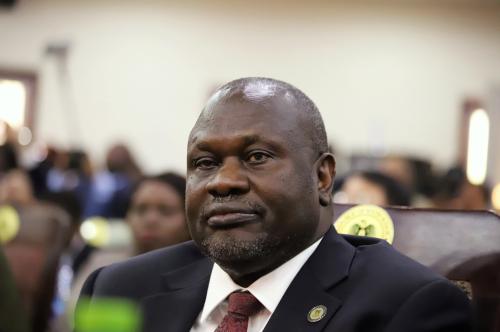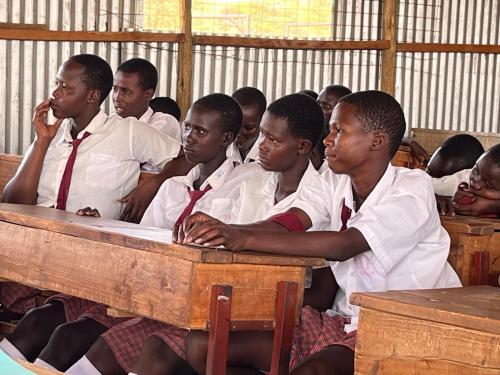Ethiopia opens Africa’s first ever waste-to-energy plant
Last Sunday, Ethiopia inaugurated Africa’s first waste-to-energy facility. The Reppie waste-to-energy plant, located on the outskirts of the Ethiopian capital, Addis Ababa, is built on the Koshe landfill site. The plant will absorbs 1,400 tons of waste daily—equivalent to 80 percent of Addis Ababa’s garbage— in order to supply 30 percent of the city’s electricity needs. The plant functions by incinerating waste, using the heat to boil water that then fuels an electricity-producing turbine engine. In order to limit emissions, the plant operates under strict regulations put in place by the European Union that prevent the release of dioxins generated through the combustion by using a flue gas treatment. The $120 million plant’s utility is twofold: It rids Addis of its waste problem—a landslide at the Koshe site in March 2017 killed nearly 144 people—and generates electricity for the growing city. The group behind the plant—which worked in collaboration with the Ethiopian Government— is made up of Cambridge Industries Limited (Singapore), China National Electric Engineering, and Ramboll, a Danish engineering firm. The group hopes that Reppie will be the first of many facilities of its kind implanted on the continent.
In other news, this week Ethiopian airlines announced that they would increase their involvement with other countries’ air companies. Tuesday, Ethiopian Airlines landed a deal that allocated it a 49 percent stake in Guinea’s national airline. It also acquired a 45 percent stake in Zambia’s national airline and created a new airline in Mozambique that it fully owns. Last week, the company submitted a bid to manage Nigeria’s national carrier. The company’s CEO, Tewolde Gebremariam, stated that the airline is looking to strengthen ties with the carriers in other African countries to assist the takeoff of regional integration.
Russia expands military foothold in Africa
On Tuesday, Russia and the Central African Republic signed an agreement to expand military cooperation between the two countries. Russia’s defense minister, Sergei K. Shoigu, states that the agreement will “strengthen ties in the defense sphere.” The collaboration between the two countries started last December when a team of Russian military advisers and 170 “civilian advisers” landed in Bangui to provide training to the army and presidential guard.
Russia is presently trying to “make up for lost time,” as stated by former Ambassador to Mali and Burkina Faso, Evgeny Korendyasov. While the country was engaged in Africa during the cold war, it has since retreated and today is trying to correct the lag in engagement with African nations. The Central African Republic is not the only African country Russia has been strengthening ties with: Last month, Russia signed an agreement with the Southern African Development Community to boost military cooperation.
Relatedly, last month, three Russian journalists were killed in a roadside robbery. The journalists were in the country to investigate Russia’s growing military involvement in the central African nations. The killings are still being investigated and clear details have yet to emerge. This week, Senators Marco Rubio, a Republican from Florida, and Chris Coons, a Democrat from Delaware, have submitted a request to U.N. Secretary-General António Guterres, requesting that he order “a full and impartial investigation” into the murders.
Protests erupt in Uganda over arrest of members of Parliament
This week, Kampala, the Uganda capital, was rocked with protests as crowds of unhappy people contested the arrest of Ugandan popstar and member of Parliament, Kyagulanyi Ssentamu, whose artist name is Bobi Wine. Protesters are also accusing authorities of mistreating Bobi Wine and other members of Parliament. The U.S. State Department has voiced concerns over the detention of Kyagulanyi, stating, “We have received multiple credible reports about his condition that are cause for concern.” The U.S. embassy in Kampala is urging authorities to allow access to doctors and lawyers to detainees.
Kyagulanyi was arrested last week over a scuffle that involved an attack on President Museveni’s motorcade when they were both in the Northern city of Arua, campaigning for opposing candidates. After the attack on the motorcade, police fired rounds at crowds, an attack that left Kyagulanyi’s driver dead and several others injured. The 36-year-old politician was arrested alongside 33 people. He was officially charged with the illegal possession of firearms and accused of stoning President Museveni’s motorcade. He has since been charged with treason.
The Brookings Institution is committed to quality, independence, and impact.
We are supported by a diverse array of funders. In line with our values and policies, each Brookings publication represents the sole views of its author(s).








Commentary
Africa in the news: Russia’s military foothold, Ethiopia’s first waste-to-energy plant, and protests in Kampala
August 25, 2018